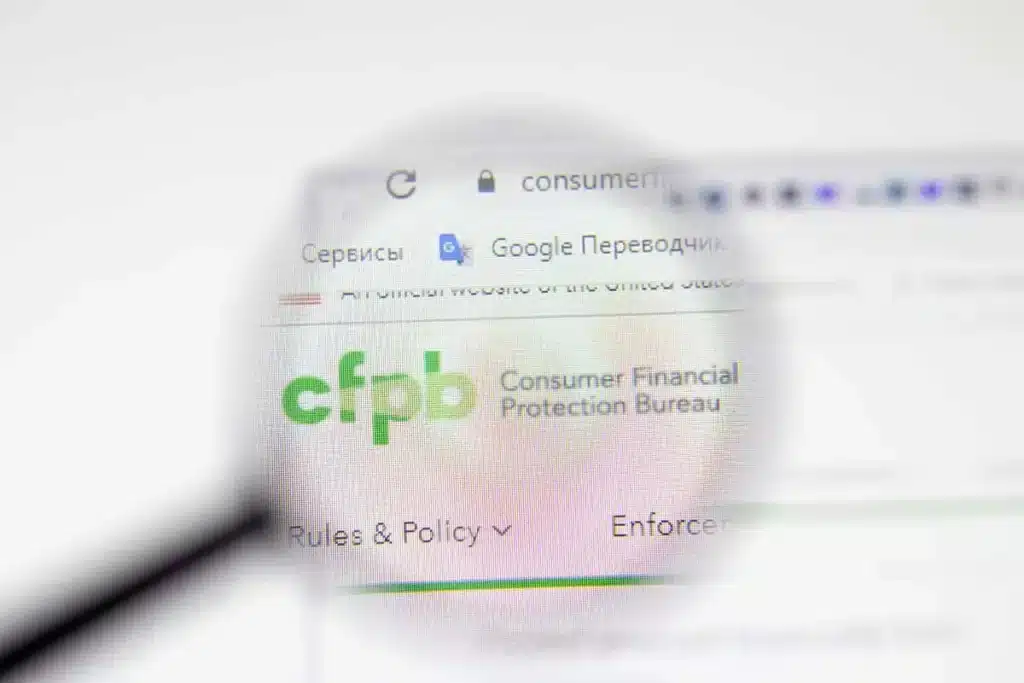The CFPB or Consumer Financial Protection Bureau was created by the Dodd-Frank Wall Street Reform Act and Consumer Protection Act with the goal of protecting individuals in the financial marketplace while increasing their knowledge on personal finances and increasing transparency. The Director of CFPB, appointed by former President Barack Obama and confirmed by the Senate, oversees all operations within the agency.
The Consumer Financial Protection Bureau’s primary mission is to promote financial literacy and transparency while safeguarding consumers in the financial marketplace. They have been given authority to enforce federal consumer financial laws, inform individuals of their rights and responsibilities, as well as take legal action against financial companies such as banks, credit unions, mortgage servicers, and payday lenders if they engage in unfair, deceptive or abusive practices that violate these federal guidelines.
In addition to enforcement, the Consumer Financial Protection Bureau (CFPB) educates consumers about financial products and services like credit cards, mortgages, and student loans. Through resources and tools that empower people with informed decisions about money matters such as guides on managing debt, comprehending credit scores, and avoiding scams, CFPB helps consumers stay ahead of the curve.
Who Runs the Consumer Financial Protection Bureau (CFPB)?

The Consumer Financial Protection Bureau is headed by a Director appointed by President Joe Biden and confirmed by the Senate. Their term is five years, with only cause for removal allowed; Rohit Chopra currently serves as Director of CFPB having been appointed by Biden in 2021 and confirmed by Senate approval.
The Consumer Financial Protection Bureau (CFPB) employs a Deputy Director who is appointed by the Director, along with other staff members tasked with upholding federal consumer financial laws, supervising financial institutions and informing consumers about available products and services.
CFPB Complaint Database
One of the primary responsibilities of the Consumer Financial Protection Bureau (CFPB) is to collect and address consumer complaints about financial products and services.
CFPB funding
The Consumer Financial Protection Bureau (CFPB) is an independent government agency funded by the Federal Reserve. Its budget does not follow traditional appropriations processes, meaning Congress does not determine its funding. Instead, CFPB funding is tied to a percentage of operating expenses at the Fed and directed by its director. Recently, political controversy has arisen around CFPB funding levels; with some lawmakers advocating for congressional oversight while others calling for increased funds so the agency can better protect consumers.

Proposed Late Fees on Credit Cards:
In 2021, the Consumer Financial Protection Bureau (CFPB) is proposing new rules to set limits on late fees credit card companies can charge customers. These would set a cap at $10 for an initial offense and $20 thereafter; furthermore, these costs cannot exceed twice as much as the actual late fee itself.
This proposal seeks to protect consumers from excessive fees and make it simpler for them to understand the terms and conditions of their credit card agreements. Before finalizing its regulations, however, the CFPB is seeking public input on the proposal.
Financial Protection Bureaus Proposals
The Consumer Financial Protection Bureau (CFPB) has proposed a series of rules and regulations designed to safeguard consumers in the financial marketplace. For instance, they plan on reining in payday lending practices, reforming mortgage servicing procedures, as well as dealing with debt collection practices.
The Consumer Financial Protection Bureau (CFPB) recently proposed regulations to address student loan servicing, credit reporting and overdraft fees. These initiatives seek to promote transparency, fairness and accountability within the financial industry while protecting customers from harmful or abusive practices.
George Mason University and Antonin Scalia Law:
The Antonin Scalia Law School at George Mason University has consistently voiced opposition to the Consumer Financial Protection Bureau and its activities. They maintain that its structure and operations violate the Constitution’s separation of powers, while its regulatory and enforcement powers are overly broad and intrusive.
In particular, the school has challenged CFPB’s use of its complaint database to inform enforcement and regulatory actions, asserting it is unreliable and decisions are based on incomplete or misleading data.

Public Registries for Nonbanks
The Consumer Financial Protection Bureau has proposed creating public registries for nonbanks such as payday lenders and debt collectors. These registries would give consumers comprehensive information on these businesses, such as their contact info, licensing status and any enforcement actions taken against them by the CFPB or other regulatory bodies.
This proposal seeks to promote transparency and accountability in the nonbank financial industry, while giving consumers information they can use to make informed decisions about financial products and services.
The Consumer Financial Protection Bureau (CFPB) has developed a suite of rules and regulations designed to safeguard customers in the financial marketplace, such as those regarding credit card fees, payday lending, mortgage servicing, debt collection and more. Furthermore, they have taken actions to promote financial literacy among customers; enhance credit card disclosures; and regulate rewards programs offered through credit cards.
Critics and supporters of the CFPB’s regulatory and enforcement activities, especially those who believe they are overly broad and intrusive, have expressed reservations. Nonetheless, the bureau remains an essential player in protecting consumers in the financial marketplace. Through its regulatory actions, consumer education initiatives, and complaint-handling process it strives to promote transparency, fairness, and accountability throughout this sector while shielding customers from harmful or abusive practices.



